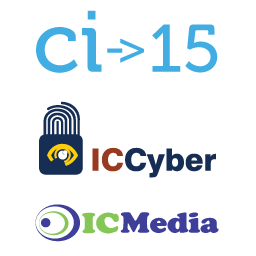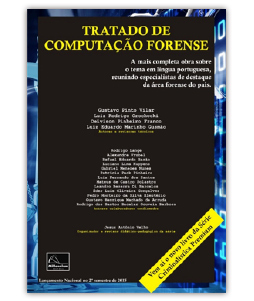The ICCyber ICMedia 2015 Joint Conference will feature presentations of papers, lectures and debates for discussion and popularization of science.
In addition to the opening ceremony on the 23rd, there will be five keynote lectures congregating all participants, held in the mornings over the three days of congress.
In the afternoons, the lectures will be organized around four tracks:
- Computer Forensics: lectures as well as technical and scientific papers related to forensic challenges in computer crimes affecting people and human rights, government organizations and private institutions. This track will consist of nine lectures;
- Multimedia Evidence and Electronic Security: lectures and technical and scientific papers regarding the state of technique and the development and exploration of technologies and solutions focused on electronic security and forensic analysis of multimedia evidence. This track will consist of nine lectures;
- Public Safety and Society: presentations and discussions addressing the relevance of criminal expertise for the achievement of justice and citizenship, taking into consideration legislative, legal, government and human rights aspects. The track will consist of nine lectures;
- Forensic Academy: presentation of scientific research work in the area of Forensic Sciences in Information Technology, Multimedia and Electronic Security, including innovation, case studies, forensic assays and solutions proposed for scientific problems. This track will feature the best 18 articles submitted.
The EXPO ICCyber ICMedia technology exhibition will take place simultaneously with the scheduled lectures and debates, and will showcase industry-developed solutions and products in information technology, multimedia, and electronic security.
SCHEDULE
Click on the dates to see the schedule grid.
jun/23/15 ➤
| HORÁRIOS | |||||
| 08:00 | Credenciamento - Welcome Coffee | ||||
| 09:30 | Solenidade de Abertura | ||||
| 10:45 - 12:00 | KS01 - How modern tech companies are approaching incident response/forensics to detect compromise in their environments Zane Lackey (En) |
||||
| 12:00 - 14:00 | ALMOÇO | ||||
| TRILHAS | IF - TRILHA INFORMÁTICA FORENSE | MS - TRILHA MULTIMÍDIA FORENSE | SS - TRILHA SEGURANÇA PÚBLICA E SOCIEDADE | AF - ACADEMIA FORENSE (artigos científicos) | |
| 14:00 - 15:00 | IF01 - IPED: Um novo software forense computacional de código livre para análise fim-a-fim PCF Msc. Luiz Felipe Nassif Cruz (Pt-BR) |
MS01 - Detecção de Falsificações do tipo Composição de Imagens Utilizando Inconsistências de Iluminação Prof. Dr. Tiago Carvalho (Pt-BR) |
SS01 - Rapid DNA Profiling Enables a New Paradigm for Fast‐paced Counterterrorism Investigations Dr. John Murphy (En) |
14:00 - 14:30 | AF01 - Identificação do calibre de munições por meio da assinatura acústica dos estojos ejetados Luiz Vinicius Gontijo Laborda Larrain |
| 14:30 - 15:00 | AF02 - Proteção da Prova Documental Impressa e Digitalizada com a Utilização de Watermarking - Felippe Pires | ||||
| 15:00 - 16:00 | IF02 - Pesquisa e Inovação. A resposta da INTERPOL para o combate aos crimes cibernéticos PCF Silvino Schlikmann Júnior - INTERPOL (Pt-BR) |
MS02 - Oportunidades e Perspectivas para Pesquisa, Desenvolvimento e Inovação em Ciências Forenses no Brasil PCF Msc. Jorge Lambert (Pt-BR) |
SS02 - Pacto Nacional de Redução de Homicídios MSc. Regina Miki - SENASP (Pt-BR) |
15:00 - 15:30 | AF03 - Método para Análise Acústica e Reconhecimento de Vogais em Exames de Comparação de Locutores Andrea Alves Guimarães Dresch |
| 15:30 - 16:00 | AF04 - Perícia Computacional em Artefatos Digitais de Interceptações Telefônicas MSc. Wilson Leite da Silva Filho |
||||
| 16:00 - 16:30 | COFFEE BREAK | Sessão de Autógrafos - Desvendando a Computação Forense - Pedro Eleutério e Márcio Machado | ||||
| 16:30 - 17:30 | IF03 - Análise automatizada de chats com abordagem de exploração sexual de crianças e adolescentes Prof. Dr. Rodrigo Filev Maia (Pt-BR) |
MS03 - DeepEyes: Solucões de Computacão Visual e Inteligência de Máquina Prof. Dr. Willian Schwartz (Pt-BR) |
SS03 - O CDCiber e sua missão institucional Cel. Msc. José Ricardo Souza Camelo - Exército Brasileiro (Pt-BR) |
||
| 17:30 - 18:30 | IF04 - Centro Integrado de Comando e Controle para Defesa Cibernética - Plataforma Integradora para Operações e Inteligência MSc. Moti El-Chay (En) MSc. Sérgio Thompson-Flores (Pt-BR) |
SS04 - Segurança nos Sistemas de Informação Marcos Mazoni (Pt-BR) |
|||
jun/24/15 ➤
| HORÁRIOS | |||||
| 09:00 | KS02 - Descobrindo Primitivas de Movimento para Reconhecimento de Ações Humanas PhD. Mubarak Sha (En) |
||||
| 10:15 | COFFEE BREAK | ||||
| 10:45 | KS03 - National Intelligence & Intervention Strategies to combat CyberCrime John Lyons - ICSPA (En) |
||||
| 12:00 - 14:00 | ALMOÇO | ||||
| TRILHAS | IF - TRILHA INFORMÁTICA FORENSE | MS - TRILHA MULTIMÍDIA FORENSE | SS - TRILHA SEGURANÇA PÚBLICA E SOCIEDADE | AF - ACADEMIA FORENSE (artigos científicos) | |
| 14:00 - 15:00 | IF05 - Global Trends and a Tiered Approach to Mobile Forensics MSc. Arnon Tirosh (En) |
MS04 - Desafios de implantação de um sistema nacional de registro civil PCF Dr. Helvio Peixoto (Pt-BR) |
SS05 - O terrorismo internacional e a Internet Raphael Mandarino Júnior (Pt-BR) |
14:00 - 14:30 | AF05 - Extração de dados em smartphones com sistema Android usando substituição da partição recovery Sibelius Vieira |
| 14:30 - 15:00 | AF06 - Método de recuperação de mensagens apagadas doSQLite no contexto do aplicativo WhatsApp paraplataforma Android Alberto Magno Muniz Soares |
||||
| 15:00 - 16:00 | IF06 - Fighting Cyber Crime: Data Protection, and Privacy in the Digital Age: Big Data and Public-Private Partnerships Patti Chrzan (En) |
MS05A - Identificação biométrica para cidadania e prevenção a fraude no Programa Nacional Brasileiro de Identificação Civil PCF Dra. Sara Lenharo (Pt-BR) MS05B - Documento de identidade nacional: Análise e proposta de um modelo inovador para o Brasil PCF MSc. Rodrigo Tavora (Pt-BR) |
SS06 - The Future of Forensic Science: Autonomy & Governance Dr. Barry Logan (En) |
15:00 - 15:30 | AF07 - Investigação em Ambientes de Jogo Multijogadores Online Juliano K. M. Oya |
| 15:30 - 16:00 | AF08 - Maldetect: Uma metodologia automatizável de detecção de malwares desconhecidos Leandro Silva dos Santos |
||||
| 16:00 - 16:30 | COFFEE BREAK | ||||
| 16:30 - 17:30 | IF07 - Investigative tools for international cyber investigations Valérie Maldonado (En) |
MS06 - Reconstrução 3D de acidentes aéreos PCF José Rocha (Pt-BR) |
SS07 - Advanced Passenger Information (API), Passenger Number Record (PNR) e a Cooperação Policial Internacional PCF Dr. Auto Tavares da Camara Junior DPF Valdecy Urquiza Júnior (Pt-BR) |
16:30 - 17:00 | AF09 - Desenvolvimento de um Ambiente Honeynet Virtual para Aplicação Governamental Gildásio Antonio de Oliveira Júnior |
| 17:00 - 17:30 | AF10 - Estudo de Rótulos de Tempo em Sistemas HFS+baseado em Metadados do Sistema de Arquivosexecutando em SO OS X Lindeberg Pessoa Leite |
||||
| 17:30 - 18:30 | IF08 - Recuperação de dados em equipamentos violados e combate e prevenção à pirataria digital Lerry Granville (Pt-BR) |
SS08 - CSIRT está morto. Vida longa ao CSIRT! – Uma abordagem baseada em inteligência para a defesa dos negócios contra o crime cibernético Damiano Cimignolo (En) |
|||
jun/25/15 ➤
| HORÁRIOS | |||||
| 09:00 - 10:15 | KS04 - Aprimoramento do Marco Civil da Internet e desafios legislativos para enfrentamento do crime cibernético no Brasil Deputado Alessandro Molon (Pt-BR) |
||||
| 10:15 - 10:45 | COFFEE BREAK | ||||
| 10:45 - 12:00 | KS05 - Innocence Project - A história de Dewey Bozella por Dewey Bozella (En) | ||||
| 12:00 - 14:00 | ALMOÇO | ||||
| TRILHAS | IF - TRILHA INFORMÁTICA FORENSE | MS - TRILHA MULTIMÍDIA FORENSE | SS - TRILHA SEGURANÇA PÚBLICA E SOCIEDADE | AF - ACADEMIA FORENSE (artigos científicos) | |
| 14:00 - 15:00 | IF09 - Sistema de Inteligência Geográfica da Perícia Criminal Federal PCF Daniel Miranda (Pt-BR) |
MS07 - Contribuições do Instituto Militar de Engenharia em Processamento de Sinais para a Segurança: MS07A - Análise de Imagem/Vídeo para Aplicações na Área de Segurança Dra. Carla Paglairi (Pt-BR) MS07B - Detecção, determinação de direção de chegada e localização de tiro Dr. J. A. Apolinário (Pt-BR) |
SS09 - Segurança Pública: uma opção política Ministra Eliana Calmon (Pt-BR) |
14:00 - 14:30 | AF11 - Brasil e Ciberterrorismo: desafios para o Rio 2016 Bruna Toso de Alcântara |
| 14:30 - 15:00 | AF12 - Um Levantamento sobre o Mercado de Exploração de Vulnerabilidades do Espaço Cibernético Prof. Dr. Rafael Timóteo de Sousa Jr. |
||||
| 15:00 - 16:00 | IF10 - Painel Segurança Cibernética nos Jogos Olímpicos e Paralímpicos Oliver Hoare - Londres 2012 (En) Rômulo Rocha - Rio 2016 (Pt-BR) Takahisa Ishida - Tóquio 2020 (En) |
MS08 - Forensic and Investigative Speaker Recognition - Current Practice and Future Trend PhD. Hirotaka Nakasone - FBI (En) |
SS10A - #HumanizaRedes - Pacto Nacional de Enfentamento às Violações de Direitos Humanos na Internet Irina Karla Bacci - SDH (Pt-BR) SS10B - Antropologia Forense e Direitos Humanos: a busca por desaparecidos Dr. Rafael Schincariol (Pt-BR) |
15:00 - 15:30 | AF13 - Extração de dados da Web relativos a licitações e contratos públicos para inferência por reconhecimento de padrões estatísticos: estudo de caso - Cirilo Max Morais |
| 15:30 - 16:00 |
AF14 - Catálogo de Fraudes da RNP: 7 anos de experiência no tratamento de fraudes eletrônicas brasileiras Edilson Lima |
||||
| 16:00 - 16:30 | COFFEE BREAK | ||||
| 16:30 - 17:30 | IF11 - Best practices for Cyber Security that work globally for large enterprises Amy Heydman (En) |
MS09 - Painel Eleições Seguras Prof. Dr. Diego Aranha - Unicamp (Pt-BR) PCF Thiago Cavalcanti - DPF (Pt-BR) |
SS11A - Combate a Pornografia Infantil na Internet DPF Pablo Barcellos Bergmann (Pt-BR) SS11B - Operação Darknet: combate a pornografia infantil na Deep Web DPF Fernando Schwengber Casarin (Pt-BR) |
16:30 - 17:00 |
AF15 - Continuous authentication via localization using triangulation of Directions of Arrival of line of sight components Prof. Dr. Paulo Lira Gondim |
| 17:30 - 18:30 | IF12A - Repressão a Crimes Cibernéticos pela Polícia Federal DPF Marco Aurélio Macedo Coelho (Pt-BR) IF12B - Operação IB2K DPF MSc. Stenio Santos (Pt-BR) |
MS10 - Estimativa de Idade por Análise de Geometria Facial Dr. Carlos E. Palhares (Pt-BR) Prof. Dr. Flávio Vidal (Pt-BR) |
SS12 - CYBERSECURITY to Safeguard lives and Property Luis Mauricio Vergara Jiménez (Pt-BR) |
||
Confirmed Speakers
Secure Elections Panel
Panel Cyber Security at the Olympic Games and Paralympic Games in London 2012, Rio 2016 and Tokyo 2020
Book Signing
Book Pre-release
Schedule
Associated Events
Confirmed Speakers
John Lyons
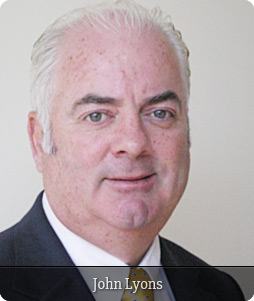
John Lyons is the Founder and Chief Executive of the International Cyber Security Protection Alliance (ICSPA). Since first joining the Royal Air Force in 1973, he has specialised in secure communications, crime and security. His work has included service in HM Forces, law enforcement and industry.
National Intelligence & Intervention Strategies to combat CyberCrime
Most developed countries now accept that the exponential growth in cyber criminality is causing significant financial harm to citizens, business communities and, even to governments. Whilst the Internet can be a huge enabler for business and society generally, financially motivated cybercrime is holding back the rate of progress and undermining confidence in the Internet as a way to transact.
In ICCYBER ICMEDIA 2015 Joint Conference, John Lyons will outline some of the key intelligence gaps that prevent governments and law enforcement agencies from executing meaningful programmes that will combat cyber criminality. He will also outline the essential intervention strategies that could be deployed to address these issues – to ensure that our economies and our citizens begin to realise the enormous benefits the Internet can deliver.
Zane Lackey

Zane Lackey is the Founder/CSO at Signal Sciences and serves on the Advisory Boards of the Internet Bug Bounty Program and the US State Department-backed Open Technology Fund. Prior to Signal Sciences, Zane was the Director of Security Engineering at Etsy and a Senior Security Consultant at iSEC Partners.
He has been featured in notable media outlets such as the BBC, Associated Press, Forbes, Wired, CNET, Network World, and SC Magazine. A frequent speaker at top industry conferences, he has presented at BlackHat, RSA, USENIX, Velocity, Microsoft BlueHat, SANS, OWASP, QCon, and has given invited lectures at Facebook, Goldman Sachs, New York University, and Reykjavik University.
He is a contributing author of Mobile Application Security (McGraw-Hill), a co-author of Hacking Exposed: Web 2.0 (McGraw-Hill), and a contributing author/technical editor of Hacking VoIP (No Starch Press). He holds a Bachelor of Arts in Economics with a minor in Computer Science from the University of California, Davis.
In ICCYBER ICMEDIA 2015 Joint Conference, Zane Lackey will talk on how modern tech companies (Etsy, Facebook, Square, Google, etc) are approaching incident response/forensics to detect compromise in their environments as attackers compromise initial endpoints and perform lateral movement, persistence, and exfiltration.
John Murphy

Dr. John Murphy is the Director of Applications Support, Human ID at IntegenX Inc, a California based company founded in 2003 to develop integrated sample preparation systems and sample-to-answer systems for the life sciences.
Before joining IntegenX, Dr. Murphy was Director of Global Technical Support at the Genomics Solutions Division of Agilent Technologies; where he led a team of scientists and engineers at multiple international sites.
Prior positions include Managing Technical Operations for the Americas at Tosoh Biosciences Clinical Diagnostics, at Arcturus Engineering LCM (now part of Life Technologies). Dr. Murphy is a member of Biolink USA Chapter. He holds Bachelor of Science degrees in Life Sciences from University College Cork (UCC) and a Ph.D. in Microbial Biotechnology also from UCC, Irish Republic.
Rapid DNA Profiling Enables a New Paradigm for Fast‐paced Counterterrorism Investigations
Historically, DNA profiling has been of limited use during the initial stages of investigations. To generate a DNA profile using conventional methods requires transporting samples back to a fully--‐equipped laboratory, availability of highly trained staff, and eight or more hours of hands--‐on labor. In practice, this process often takes 2--‐3 days in the best circumstances. Rapid DNA profiling, on the other hand, “describes the fully automated (hands free) process” of developing a DNA profile in under two hours from a raw sample (FBI). Rapid DNA Profiling can also be performed in the field (IntegenX, ISHI 2012), allowing for DNA profiles to be generated within hours after a sample is collected.
Rapid DNA can be used in several scenarios to guide the early stages of an investigation. First, DNA profiles can be generated from a suspect already in custody to positively identify that person against exhibits from a specific case or a database of unresolved crimes. The use of Rapid DNA with reference samples is well documented (FSI Dev Val, 2014). Next, Rapid DNA can be used to identity a person of interest via collection of abandoned materials—e.g., a cigarette butt or drink container which the person has discarded (IntegenX, ISHI 2013). Lastly, Rapid DNA can produce DNA profiles from unknown latent samples, including articles collected from a suspected terrorist’s dwelling, the exterior of a mobile phone used as a remote detonation device, or tissue remnants from a suicide bomb blast.
Alessandro Molon
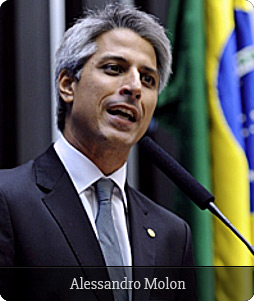
Labor Party Congressman Molon has represented Rio de Janeiro in Congress since 2011. He is currently serving in the Constitution and Justice and Citizenship Committee and is an Alternate Member of the House of Representative’s Education Commission. Congressman Molon was rapporteur of the project establishing the Brazilian Civil Rights Framework for the Internet.
Holds a master’s and a bachelor’s degree in History from Universidade Federal Fluminense - UFF and a bachelor’s degree in Law from the Pontifical Catholic University of Rio de Janeiro - PUC. A teacher of History in the Public Education System and at prestigious Colégio São Bento in Rio de Janeiro. Professor of Law at PUC, Rio de Janeiro.
Decorated with the Dom Hélder Câmara Medal, awarded by PUC, Rio de Janeiro, and with the Collar of Merit awarded by the Prosecutor’s Office of the State of Rio de Janeiro.
At the Joint ICCYBER ICMEDIA 2015 Conference, Alessandro Molon will talk about improvements to the Brazilian Civil Rights Framework for the Internet and will be speaking about new legislative challenges to cope with cyber-crime in Brazil.
Daniel Araújo Miranda
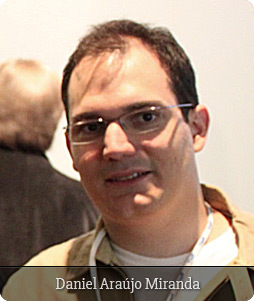
Graduated in Computer Engineering from the Aeronautical Technology Institute – ITA in 2002. Federal Criminal Expert of the Department of Federal Police since 2006. Technical Officer in Charge of the Federal Criminal Experts Department’s Geographic Intelligence System - INTELIGEO since 2010 and system manager since 2013.
At the Joint ICCYBER ICMEDIA 2015 Conference, Daniel Araújo Miranda will showcase the information management framework model for the Federal Criminal Experts Department’s Geographic Intelligence System.
José Rocha de Carvalho Filho
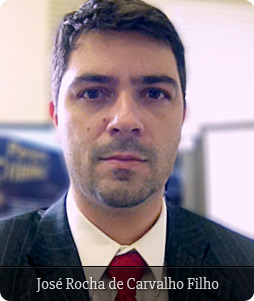
José Rocha de Carvalho Filho graduated as a Communications Network Engineer from the University of Brasilia - UnB and is a Federal Criminal Expert at the National Institute of Forensic Science, working in the area of audio and image recording forensics.
Reconstruction of Air Crashes using 3D Imaging
Advances in three-dimensional (3D) imaging techniques and equipment, including the use of scanners and photogrammetry techniques, have popularized access to 3D image technology. At the Joint ICCYBER ICMEDIA 2015 Conference, José Rocha Carvalho Filho will present real-life cases of forensic work involving air accidents, showcasing the full potential of Federal Police techniques and methods in the documentation and clarification of incident dynamics.
Auto Tavares da Camara Junior
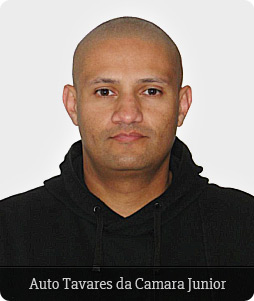
Auto graduated a Computer Scientist and holds an MBA in Strategic Management of Information Systems and a Master’s degree and Ph.D. in Information Science.
Auto is a Federal Criminal Expert with the Brazilian Federal Police and a Professor with the Faculty of Technology and Applied Social Sciences at the University of Brasilia.
He has experience in the areas of Forensic Science, Computer Science, Public Administration and Information Science, having worked mainly in the areas of computer forensics, international police cooperation, higher education and natural language processing.
Valdecy Urquiza Júnior
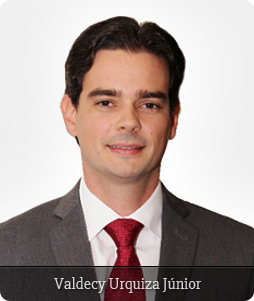
Federal Police Chief and Head of Interpol in Brazil. Former Federal Police Foreign Affairs Assistant, former Head of the Financial Crimes Repression Group and of the Crimes Against Treasury Repression Department. He held the position of Federal Police CIO, leading projects to develop technological solutions applied to police activity. He is a professor at the National Police Academy and has postgraduate degrees in Public Administration from IBMEC and in Strategic Sustainability Management from PUC/SP.
Auto Tavares and Valdecy Urquiza will make a presentation about:
Advance Passenger Information (API), Passenger Name Record (PNR) and International Police Cooperation
API (Advance Passenger Information) and PNR (Passenger Name Record) are used by the air industry to transfer passenger data to and from its stakeholders, mainly airlines and governments. The objective is to have passenger information sent in advance of their arrival, to enable planning and preparing for it.
This is of key importance to the Federal Police, in areas such as international cooperation, police intelligence, fighting drug trade, and others. It is also relevant to the operations of other government agencies, such as the Inland Revenue, Anvisa (National Health Surveillance Agency), and Vigiagro (Agricultural Surveillance System).
The discussion concerns the project’s implementation in Brazil, its costs and benefits, information sharing methods, its use in the framework of the Federal Police and future prospects.
Raphael Mandarino Junior
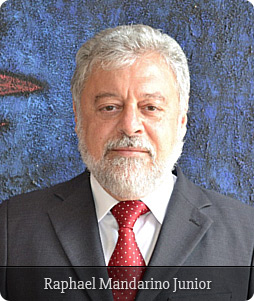
A mathematician and Information Security Management Expert postgraduate from University of Brasilia, a Master’s degree candidate in Computer Science at the Federal University of Pernambuco, Raphael has worked for 39 years in the area of Information Security. He has implemented and for the past eight years directed the Information and Communications Security Department of the Presidency of the Republic, responsible for preparing and implementing cyber-industry policies and guidelines in Brazil.
During the same period, he coordinated the Information Security Managing Committee, the Collegiate Body of the National Defense Council, responsible for drawing up Policies and Standards for the protection of Federal Government information in any environment where it may be stored.
He is the author of several books, among them Segurança e Defesa do Espaço Cibernético Brasileiro, the first dedicated to the security and defense of Brazilian cyberspace. He is also a researcher in the area, a consultant and a lecturer.
International Terrorism and the Internet
With the expansion in the use of information and communications technology (ICT) we all became part of the so-called information society, almost without noticing it. For example, we currently work, study and do our banking transactions over the Internet, using protocols and applications that are typically built with no concern to safety and whose source code we do not know.
The resulting vulnerabilities are thus exploited both by criminals seeking financial gain as well as by states seeking military, industrial or commercial secrets, and even by international terrorism, for propaganda and information exchange. How do we protect ourselves and how do we fight it?
Rodrigo Filev Maia
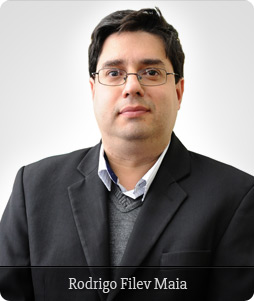
PhD in Computer Engineering (EPUSP), earned his Master’s degree in 2004 and graduated an Electrical Engineer in 2000. Full-time professor at the FEI University Center and coordinator of the Vivo-FEI Internet of Things Laboratory. Coordinator of the Information Security specialization course. Director of Arcarius Engenharia and responsible for telecommunications projects in metro-rail systems. Researcher in European projects: INSTINC (FP6), BELIEF (FP6), SAMBA (FP7), eMundus (Erasmus Mundus). Research interests include analysis of complex patterns, quality of service, the internet of things, education and distance education.
Electrical Engineering degree with emphasis in Computing from the USP Polytechnic School. Participating researcher in Groups KNOMA (Laboratory of Knowledge Engineering) and Complex Systems Engineering, both at the USP Polytechnic School.
At the Joint ICCYBER ICMEDIA 2015 Conference, Rodrigo Filev Maia will present the automatic detection of abusive behaviors against children and adolescents in digital chat environments, a technology developed by a research group under his coordination.
Jorge de Albuquerque Lambert
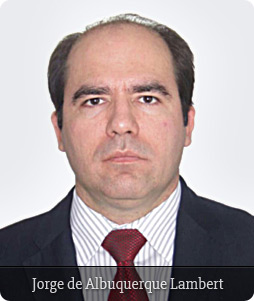
MSc in Systems and Computing from the Military Institute of Engineering (IME), professor of the Department of Electrical Engineering between 2004 and 2006. Concluded the Army Communications Officer Training Course at the Agulhas Negras Military Academy in 1992, the Electrical Engineering undergraduate program at IME in 1998, worked in the Brazilian Ordnance Industry, at the Itajubá weapons factory and the Rio de Janeiro Communications Materials factory, in the electrical maintenance, quality control and R&D areas of both factories. Occupational Safety Specialist from the Federal University of Rio de Janeiro, in 2005.
A Federal Criminal Expert since 2007, he has worked in the Technical Scientific Sector of the Federal Police Superintendence in Sao Paulo and in the Audiovisual and Electronic Expertise Service of the National Institute of Forensic Science (SEPAEL/INC), and currently works in the Institutional Development Area of the Federal Police Technical and Scientific Directory, focusing on developing Research, Development and Innovation, and Forensic Sciences training.
Creator and current manager of the Forensic Sciences Research and Development System of the Technical and Scientific Directory. Founder Member of the Brazilian Academy of Forensic Science, is jointly responsible for the Integrated System of Forensic Analysis of Images Project (DPF-DITEC /FINEP/FUNDEP) and is part of the DeepEyes design team (UNICAMP /UFMG/UnB/INC-DITEC) as DITEC/DPF representative.
Opportunities and Prospects for Research, Development and Innovation in Forensic Sciences in Brazil
The speaker will make a presentation and appreciation of the performance of the Brazilian Academy of Forensic Sciences and CAPES in encouraging the development of Forensic Sciences in Brazil, of the first Pro-Forenses call for projects (CAPES/MEC) and the resulting applied RD&I opportunities for students, researchers, professionals and companies. He will also showcase the design of the Integrated System of Forensic Analysis of Images (SINAFI), designed as from 2009 at INC/DITEC/DPF and enhanced with contributions from various criminal experts, teachers, researchers, and developers. SINAFI is a project financed by FINEP/MCTI and a platform that will be capable of integrating traditional techniques and research results in the area of images and video, treating evidence with an expert perspective. The system is intended to be distributed free of charge to all official expertise units requiring it, including those in friendly countries. One of the objectives of the project is to integrate not only the tools of interest of experts, but also of users, promoting expertise leveling and training in audiovisual vestiges with the largest coverage possible. Finally, we will revisit the challenges presented in the first ICMedia Open Issues (2011), where twelve themes were presented for research and development in universities. There will also be an appreciation of the work done involving such themes and how they relate with SINAFI, with Pro-Forenses and with future challenges and opportunities.
William Robson Schwartz

William Robson Schwartz is an Associate Professor in the Department of Computer Science at the Federal University of Minas Gerais, Brazil. He is recipient of the CNPq Productivity Fellowship since 2013. He received his BSc and MSc degrees in Computer Science from the Federal University of Parana, Curitiba, Brazil in 2003 and 2005, respectively. He received his PhD degree in Computer Science from the University of Maryland, College Park, USA in 2010. Then, he spent one year in the Institute of Computing at the University of Campinas as a Postdoctoral researcher. His research interests include Computer Vision, Surveillance, Forensics, and Biometrics, with focus on problems of face spoofing and recognition, pedestrian detection, and person re-identification. He is also the head of the Smart Surveillance Interest Group (SSIG), a research group focusing on large-scale surveillance, and advises several Master’s and PhD students, all focusing their works on Forensics and Surveillance.
DeepEyes: Solucões de Computacão Visual e Inteligência de Máquina para Computação Forense e Vigilância Eletrônica
Criminal activities might vary in complexity and scope, but they are spread in the society. With the technological development, crimes have become more sophisticate and not only afflicting the physical world, but also the virtual world. Due to the countless ways the illegal activities may be performed, our society needs to pursue new techniques to solving and preventing such activities. To that, we need objective criteria to identify characteristics in the crime scenes or prevent crimes from happening by taking effective measures thought video surveillance. This talk will overview problems related to computer forensics and video surveillance that are useful to solving and preventing criminal activities. Among them are forgery detection on digital image and videos; source attribution for cameras, scanners and printers; detection of illegal crops from remote sensing images; development of techniques for human identification based on facial information; vehicle license plate recognition from digital videos; and activity analysis from digital videos.
Hélvio Pereira Peixoto

A Bachelor's degree from the Federal University of Uberlandia, an MSc in Computer Science from UNICAMP and a PhD in Electrical Engineering and Computing from the University of Texas at Austin. Worked as Systems Engineer and industrial automation Project Manager at Intel Corporation in Portland, USA. Was Computer Engineering Course Director at the University of Uberaba. As a Federal Criminal Expert in the area of Computer Forensics, he worked at the Federal Police National Institute of Forensic Science designing, planning, developing and implementing various projects promoting Forensic Science. Was Projects Office coordinator at the Ministry of Justice, a position held until he was invited to develop studies and research to support the reformulation of the Civil Identification Registry Program.
The challenges of deploying a National Civil Identification Registry
Much has been published and discussed about national civil identification systems, whether due to the technological appeal of citizen identification in the provision of public services, the promotion of citizenship or public safety. Regardless of the proposal to be adopted in Brazil, it must first be understood that only through trustworthy civil identification can the State recognize and empower citizens to exercise their citizenship. Correct identification means safer social relations and transactions, reduces fraud in welfare programs, corroborates the formalization of economic activities and facilitates democratic participation. However, the challenges of deploying a national system are numerous, and pervade issues involving the federative pact, inclusion of the entire population, privacy, government control, the centralization model, information security, reuse of the legacy, scalability, technological advance and of course, the necessary investment to render the system feasible. Contrary to common sense, we have demonstrated that it is more costly for Brazil not to have a national civil identification system, whether these are social costs, or financial costs that such a system would help to avoid. To confirm the importance of deploying the system, we will discuss the importance of the Civil Identification Registry, key difficulties in its deployment and the possibilities that will be opened up to society, in which citizens will be able to recognize and rely on their peers.
Damiano Cimignolo
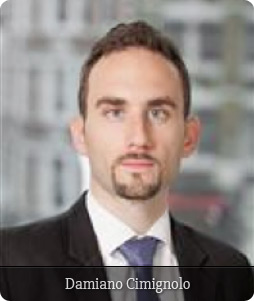
Damiano Cimignolo graduated in Telecommunication engineering with a specialization in Remote sensing (military and civil radar) from the University “La Sapienza” of Rome. After one year of as academic research on MARSIS, the European Space Agency’s mission to find water on Mars, he moved to IT and management consulting, mainly focusing on the Telecom sector. After earning an MBA from “St. John’s University” in New York, he moved to the banking industry, taking different positions in Corporate Finance between Amsterdam and London, where he currently lives.
He joined Tiger Security in 2014 as CFO to take on responsibilities in financing matters as well as developing the business internationally.
CERT is dead. Long live the CERT! – Introducing an intelligence-based approach to defend against cybercrime
In this lecture, Cimignolo will introduce a new model of Computer Emergency Response Teams, called CERT 2.0, capable of anticipating and predicting the evolution of cyber threats thanks to information tools based on the constant monitoring of the cyber threat landscape, the analysis of the context, the key players, their offensive strategy and the cyber weapons at their disposal.
Eliana Calmon
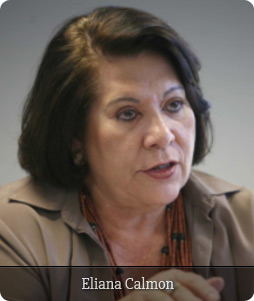
Brazilian magistrate, born in Salvador/BA. First woman to serve as Minister in the Superior Court of Justice - STJ (1999-2013), where she stood out for her firmness and high productivity, with over one hundred thousand cases tried, among monocratic decisions and trial sessions.
Was Inspector General of Justice (2010-2012) and Director General of the National School for the Training and Improvement of Magistrates Minister Sálvio de Figueiredo (ENFAM), a coordination center for all law schools in the country and, according to Minister Calmon, with the purpose of training judges with a national perspective and "capable of acting as political agents"..
She has lectured in several graduate courses promoted by the Brazilian Institute of Procedural Law (IBDP), by the Council of the Federal Justice (CJF) and by the Brazilian Institute of Research and Integrated Studies (IBPEI), especially in the areas of Tax Law and enforcement. She was professor of Civil Law at the Law School of Associação de Ensino Unificado do Distrito Federal (AEUDF) and at the Catholic University of Salvador.
In 2005, Forbes magazine elected her the most influential woman in the Brazilian judiciary sector and in 2006 she was elected “Woman of the Year" by the International Women's Club of Bahia.
In 2010, she received the Maria Quiteria Medal, granted by the City Council of Salvador (BA) and was honored by OAB-PA and the Brazilian Association of Female Career Judges (ABMCJ) for her services in favor of citizen rights. In 2009, the Congress honored her with the Medal of Legislative Merit and in 2008 she was laureated by TJDFT with the Order of the Judiciary Merit. Also in 2008, OAB-SP acknowledged the contribution of Minister Calmon to the Brazilian Justice System. In 2007, she was honored by OAB-PA with the collar of the Order of the Legal Merit - Grade Gold, and in 2006 by the Judiciary Section of the State of Bahia with Commendation Minister Aliomar de Andrade Balleiro. In 2004, the Military Prosecutors Office and the Regional Electoral Court of the Federal District awarded her with their orders of merit. In 2003, the 22nd Regional Labor Court awarded her the Grand Cross for relevant services in the interest of justice.
At the Joint ICCYBER ICMEDIA 2015 Conference, Eliana Calmon will speak on "Public Safety: a political option".
Tiago Carvalho
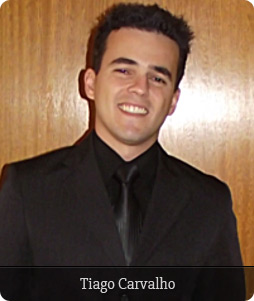
Tiago Carvalho received his B.Sc. (Computer Science) degree from Federal University of Juiz de Fora (UFJF), Brazil in 2008. He received his M.Sc. and Ph.D. (Computer Science) from University of Campinas (University of Campinas (Unicamp)), Brazil, in 2010 and 2014, respectively. Along his Ph.D. developed digital forensics works in collaboration with researcher of Earlangen-Nuremberg University and with Dartmouth College. Currently, he is a Technologist at the National Center for Monitoring and Early Warning of Natural Disasters (CEMADEN) in Brazil.
His main interests include digital image forensics, image processing, pattern analysis, machine learning, general computer vision and problems related with environment weather monitoring. He has actively worked as reviewer in important Image Processing and Digital Forensics journals, such as IEEE Transactions on Information Forensics and Security (T.IFS), Elsevier Journal of Visual Image Communication and Representation (JVCI), and IEEE Transactions on Image Processing (T.IP).
In 2011 he was awarded with the best image processing master’s dissertation in SIBGRAPI’2011 by his work in diabetic retinopathy anomalies detection in eye funds images. Finally, in 2014 he was awarded with the best Ph.D. Thesis in SIBGRAPI’2014 by his digital forensics research.
Detecção de Falsificações do tipo Composição de Imagens Utilizando Inconsistências de Iluminação
Once taken for granted as genuine, photographs are no longer considered as a piece of truth. With the advance of digital image processing and computer graphics techniques, it has been easier than ever to manipulate images and forge new realities within minutes. Unfortunately, most of the times, these modifications seek to deceive viewers, change opinions or even affect how people perceive reality. Therefore, it is paramount to devise and deploy efficient and effective detection techniques. From all types of image forgeries, composition images are specially interesting. This type of forgery uses parts of two or more images to construct a new reality from scenes that never happened. Among all different telltales investigated for detecting image compositions, image-illumination inconsistencies are considered the most promising since a perfect light matching in a forged image is still difficult to achieve.
Inspired by many approaches presented on WIFS 11 and with a financial support of Capes Deep Eyes project, this talk presents two original and effective approaches developed to detect image splicing forgeries. The first method explores metamerism, when the colors of two objects may appear to match under one light source but appear completely different under another one. The second method relies on user’s interaction to specify 3-D normals of suspect objects in an image from which the 3-D light source position can be estimated. Together, these approaches bring to the forensic community important contributions which certainly will be a strong tool against image forgeries.
Mubarak Shah
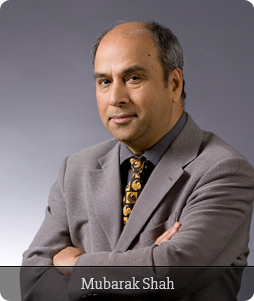
Dr. Mubarak Shah, Agere Chair Professor of Computer Science, is the founding director of Center for Research in Computer Visions at University of Central Florida (UCF). He is a co-author of five books: Motion-Based Recognition (1997); Video Registration (2003); Automated Multi-Camera Surveillance: Algorithms and Practice (2008); Modeling, Simulation and Visual Analysis of Crowds (2013); and Robust Subspace Estimation Using Low-Rank Optimization (2014), all by Springer. He has published extensively on topics related to visual surveillance, tracking, human activity and action recognition, object detection and categorization, shape from shading, geo registration, visual crowd analysis, etc. Dr. Shah is a fellow of IEEE, IAPR, AAAS and SPIE. In 2006, he was awarded the Pegasus Professor award, the highest award at UCF, given to a faculty member who has made a significant impact on the university. He is ACM Distinguished Speaker. He was an IEEE Distinguished Visitor speaker for 1997-2000, and received IEEE Outstanding Engineering Educator Award in 1997. He received the Harris Corporation's Engineering Achievement Award in 1999, the TOKTEN awards from UNDP in 1995, 1997, and 2000; SANA award in 2007, an honorable mention for the ICCV 2005 Where Am I? Challenge Problem, and was nominated for the best paper award in ACM Multimedia Conference in 2005 and 2010. At UCF he received Scholarship of Teaching and Learning (SoTL) award in 20111; College of Engineering and Computer Science Advisory Board award for faculty excellence in 2011; Teaching Incentive Program awards in 1995 and 2003, Research Incentive Award in 2003 and 2009, Millionaires' Club awards in 2005, 2006, 2009, 2010 and 2011; University Distinguished Researcher award in 2007 and 2012. He is an editor of international book series on Video Computing; editor in chief of Machine Vision and Applications journal, and an associate editor of ACM Computing Surveys journal. He was an associate editor of the IEEE Transactions on PAMI, and a guest editor of the special issue of International Journal of Computer Vision on Video Computing. He was the program co-chair of IEEE Conference on Computer Vision and Pattern Recognition (CVPR), 2008.
Discovering Motion Primitives for Human Actions Recognition
Automatic analysis of videos is one of most challenging problems in Computer vision. In this talk I will introduce the problem of action, event, and activity representation and recognition from video sequences. I will begin by giving a brief overview of a few interesting methods to solve this problem, including trajectories, volumes, and local interest points based representations.
The main part of the talk will focus on a newly developed framework for the discovery and statistical representation of motion patterns in videos, which can act as primitive, atomic actions. These action primitives are employed as a generalizable representation of articulated human actions, gestures, and facial expressions. The motion primitives are learned by hierarchical clustering of observed optical flow in four dimensional, spatial and motion flow space, and a sequence of these primitives can be represented as a simple string, a histogram, or a Hidden Markov model.
José Antonio Apolinário Júnior
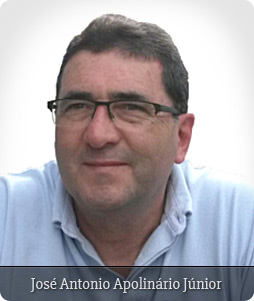
José Antonio Apolinário Jr. was born in Taubaté, São Paulo/Brazil, in 1960.
He graduated (signal corps officer) from the Military Academy of Agulhas Negras, Resende, Brazil, in 1981.
He also received the B.Sc. degree from the Military Institute of Engineering (IME), Rio de Janeiro, Brazil, in 1988, the M.Sc. degree from the University of Brasília, Brasília, Brazil, in 1993, and the D.Sc. degree from the Alberto Luiz Coimbra Institute of Post-Graduation and Research in Engineering, Federal University of Rio de Janeiro, Rio de Janeiro, in 1998, all in electrical engineering.
He is currently an Associate Professor with the Department of Electrical Engineering, IME, where he has already served as the Head of the Department of Electrical Engineering and the Vice Rector for Study and Research.
He was a Visiting Professor with the Escuela Politécnica del Ejército, Quito, Ecuador, from 1999 to 2000, and a Visiting Researcher and twice a Visiting Professor with Aalto University, Espoo, Finland, in 1997, 2004, and 2006, respectively.
His research interests comprise many aspects of linear and nonlinear digital signal processing, including adaptive filtering, speech, and array processing.
He has edited the book QRD-RLS Adaptive Filtering (New York: Springer, 2009).
He has organized and been the first Chair of the Rio de Janeiro Chapter of the IEEE Communications Society.
He was the Finance Chair of the IEEE International Symposium on Circuits and Systems in Rio de Janeiro, in 2011.
Detection, determination of direction of arrival, and gunshot localization
The talk summarizes the research developed at the Digital Signal Processing Laboratory of the Military Institute of Engineering (IME) regarding the treatment of gunshot signals acquired from an array of microphones. The focus of this work has been the application of signal processing techniques to a sniper scenario but such research finds applications in distinct areas such as public safety, surveillance systems, and even forensic investigations. Current state of the research is presented and possibilities of applications are discussed as well as topics for further investigation.
Sara Lenharo

Graduated in geology at São Paulo State University - UNESP/Rio Claro, specializing in Ore Treatment and Metallurgy by Tohoku University in Sendai, Japan. Master in Mineral Engineering from the University of São Paulo - USP and PhD in Mineral Engineering and Economic Geology by USP with split side at James Cook University, Townsville, Australia. Worked as a field geologist in Paranapanema Mining Group. Worked as a teacher and researcher at the University of Brasilia and the Norte Fluminense State University. As a Federal Criminal Expert worked in the Roraima Regional Superintendent and the National Institute of Criminalistics as responsible for the area of scanning electron microscopy and as head of the Forensic Ballistics section. In the Ministry of Justice served in the National Secretariat of Public Security - SENASP and is currently developing studies on biometrics and quality control in the Civil Identification Register Program.
Biometric identification for citizenship and fraud prevention in the Brazilian National Civil Identity Program
The aim of the Brazilian National ID program was to develop an identification that ensure the inclusion of all people at the same time that avoid duplication. In this way, it is necessary to establish the peculiarities of the target population for which the enrollment is efficient. The methodology used classified the six most promising biometrics according to 3 distinctive categories and a benchmarking. Based on this classification of the biometric mind maps and a hierarchical classification of biometrics characteristics, the biometric traits iris, fingerprint and face were selected to compose the RIC Program.
Stenio Santos Sousa
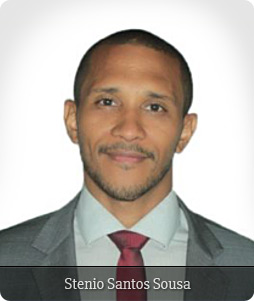
Federal Police Chief since 2003, with a Master's Degree in Police Sciences, in specialization Criminology and Criminal Investigation (2013-2015), from the Higher Institute of Police Sciences and Internal Security (Lisbon, Portugal); non-degree specialization in Police Sciences from the same institute (2013-2014); non-degree specialization in Criminal Sciences through agreement UNAMA /UVB/LFG (2005-2007); Graduated in Law from the Federal University of Maranhão (1997-2002).
He was chief of the Special Group to Fight Hate Crimes and Child Pornography on the Internet (GECOP), of the Federal Police Human Rights Division in Brasilia/DF (2009/2011); Member of the Intersector Commission to Confront Sexual Violence against Children and Adolescents, established by the Special Human Rights Secretariat of the Presidency of the Republic (SEDH/PR) (2008-2011); Member of the Child Protection Partnership (CPP), an initiative by Canada’s International Institute For Child Rights And Development (IICRD) (2009/2011); Member of the CETS International Advisory Board (Child Exploitation Tracking System) (2010/2011); Member of the Interpol Group of Researchers - Groove tool (2010/2011); Member of the International Innocent Images Taskforce - IIITF promoted by the FBI (2010/2011); Interpol’s ICSEDB (International Child Sexual Exploitation Database) Manager for Brazil (2009/2011); Member of the Virtual Global Taskforce (VGT) (2011); Coordinator of various police operations, among them Turko, 24 horas, Tapete Persa and IB2K; Professor of the graduate course in Investigation, Constitution and Right of Defense of the LFG Network (2011).
Currently teaches at the National Police Academy (since 2006), where he is also a distance learning tutor (since 2011), lecturer, writer of legal columns, author of the book Investigação Criminal Cibernética: por uma política criminal de proteção à criança e ao adolescente na Internet (in press) and Head of the Cybercrime Repression Group (GRCC) of the Federal Police Regional Superintendence in the Federal District since 2012.
Federal Police Chief Stenio will present a case study from Operation IB2K, set in motion by the Federal Police in September 2014 in Brazil’s Federal District.
Pablo Barcellos Bergmann

Federal Police Chief since 2008. Postgraduate in Judiciary Law (CEP/FATEC: 2008), graduated in Law (UVV/ES: 1996-2000).
Has taken courses in Fighting Cybercrime, Research Management of Child Pornography on the Internet, Planning and Management of Police Operations, Fighting Money Laundering, and others.
Based at the Cachoeiro do Itapemirim/ES Federal Police Office between 2008 and 2014, where he was responsible for operations fighting electoral, welfare and environmental crimes, as well as corruption. Based at the Cybercrime Repression Service since March 2014 and at current is temporarily responsible for the Hate Crimes and Child Pornography Combat Unit (URCOP/SRCC).
Taught "Cybercrime" at the National Police Academy (2014).
In his lecture at the Joint ICCYBER ICMEDIA 2015 Conference, Pablo Bergmann will address the theme "Fighting Child Pornography on the Internet".
Regina Miki
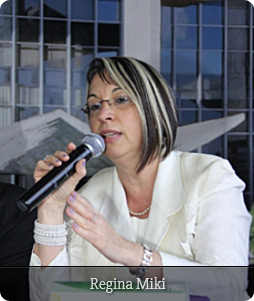
Regina Maria Filomena De Luca Miki is a lawyer, with a Master’s degree in Constitutional Law from PUC/RS, and specializations in Family and Land Law, and in Public Security Policies from PUC/RS. She teaches at the Public Security Institute of Fundação Santo Andre/SP and the Paulista School of Law and is on temporary leave as Adviser to the Brazilian Forum of Public Security and the National Council for the Rights of Children and Adolescents - CONANDA. She is a member of the Metropolitan Forum of Public Safety, and part of the Intersectoral Committee to Follow-up and Monitor the National Street Population Policy and of the PNDH-3 Follow-up and Monitoring Committee, both under the Presidency of the Republic. She was the general coordinator of the 1st National Conference on Public Security – 1st Conseg, and Secretary of Social Protection of the City of Diadema (SP). Executive Secretary of the National Public Security Council -CONASP. She is currently the National Public Security Secretary - SENASP, President of the National Public Security Council of the Ministry of Justice, and President of the National Committee of Public Safety in Ports-CONPORTOS.
National Pact for the Reduction of Homicides
The pact must involve integrated actions by Federal, State and Municipal
Governments for the reduction of homicides, by articulating public security, criminal justice and prison system bodies, as well as various public policies in critical areas, organizing actions such as the qualification of the investigation procedures of violent deaths, strengthening ostensive and community policing actions, and weapons control.
The successful experience of program “Brasil Mais Seguro” is a reference, implemented since 2012 in the state of Alagoas, which had the highest homicide rates in the country. In its capital city Maceió, for example, homicide rates per 100 thousand population was reduced from 100.4 in 2011 to 67.6 in 2014.
Rodrigo Távora
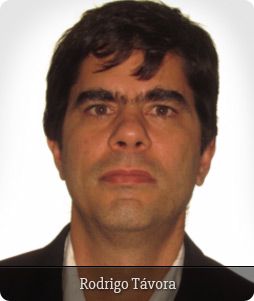
R. Távora received his B.Sc in Communications Engineering from the Military Engineering Institute in 1996, and his M.Sc in Electrical Engineering from the Federal University of Pernambuco in 2001. He has been working at the Brazilian Federal Police on audio and image forensics as a Forensic Expert since 2002. Currently he is a doctoral student at the University of Brasilia, doing research on passive audio authentication. Since 2014 he has been working on the Brazilian Civil Identification Project (RIC).
Framework analysis and a proposal of an innovative model for a national identity document
On the last decade, a great number of electronic identity projects have been launched, mainly in Europe. Nevertheless, until now no global eID model has been proposed. Opposed to this trend, recently a chipless national identity was specified in Mexico and a chipless model was proposed for the future European birth certificate. This paper analyses the international experience on eID issuance, evaluating subjects such as the adoptions rate, the usability and the cost, besides technical aspects such as interoperability, authentication protocols and middleware. This analysis clearly points to the low perspective of eID adoption rate in Brazil, where eGov services and models are still being discussed. Thus, the main goals of a national identity project are revised and the solutions are proposed by a service segmentation approach. Some methods are proposed for electronic authentication, and an innovative, safe and low-cost identity model, which enables in-person biometric authentication and passive authentication of biometric and biographic data, is proposed.
Carla Pagliari

Ph.D. in Electronic Systems Engineering - University of Essex (1999), England and is currently with the Department of Electrical Engineering at the Military Institute of Engineering. She has experience in the area of Television Engineering and Image Processing, acting on the following topics: image/video coding, stereo/multi-view video coding , stereo systems, image/video synthesis, video streaming and digital TV. She participated in the definition of the Brazilian Digital Television System and is a member of the Educational Board of the Brazilian Engineering Society. She has projects in image processing for defence applications, image/video fusion of the infrared and visible-light signals, video over IP for applications in public safety and digital TV. She acts as anl associate editor of the Multidimensional Systems and Signal Processing (Springer) journal.
Image and Video Processing for Security and Surveillance
We will present the research developed by the Image Processing Laboratory (LPI) of the Military Engineering Institute (EMI) and Signal, Media and Telecommunications (SMT) Laboratory of the Federal University of Rio de Janeiro (UFRJ) in visible-light and infrared regions image fusion, camera calibration, eye detection and tracking, face detection and recognition and the development of databases for evaluation/development of detection of abandoned objects and image/video fusion techniques.
Marco Aurelio de Macedo Coelho
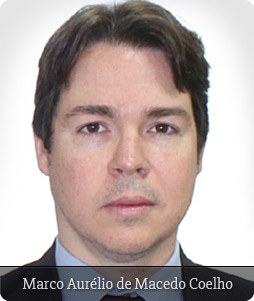
Federal Police Chief since 2009. A Federal Supreme Court Legal Analyst between 2000-2009, he was assigned to the Superior Court of Justice between 2006 and 2009. He held the at-will position of legal assistant at Minister Ellen Gracie’s office in the Federal Supreme Court between 2001 and 2006 and also the at-will position of a minister’s assistant at the office of Minister Maria Thereza de Assis Moura in the Superior Court of Justice between 2008 and 2009. Graduated in Law from the University of Brasilia in 1999.
He was sworn in as Federal Police Chief at SR/DPF/PA, having become chief of the Department of Crimes Against the Treasury – DELEFAZ in 2012. He was also part of the Cybercrime Repression Group of SR/DPF/PA, having been its chief as from 2013. He was also part of the coordination of Operation On-Line’s investigation, which was set in motion in 2011 in Marabá, Pará, against a gang specializing in bank fraud. Is a distance learning tutor at the National Police Academy.
He is currently stationed in the Cybercrime Repression Service - SRCC /DICOR/DPF where he is responsible for the areas of international cooperation, research, development and training.
In his lecture, Marco Aurelio will address the theme "Cybercrime Repression by the Federal Police", and will present the model adopted by the Brazilian Federal Police to suppress cybercrime.
Dewey Bozella

After being wrongly convicted for the murder of a of 92 year-old woman, Dewey Bozella, who is now a boxer, became an example of how criminal investigation and Justice must be improved. His condemnation in an extremely flawed process cost him twenty six years at New York prison Sing Sing. While in prison, Dewey graduated and earned a Master’s degree. Following proof of his innocence and consequent liberation, Dewey received the Arthur Ashe Award for Courage, granted by ESPN. Dewey will talk about his story at the Joint Conference and the importance of reliable investigation tools that prevent condemnation of the innocent.
Lerry Granville

Director of Operations at AIC Security (Cybernetic Intelligence Agency). Multi-expert entrepreneur, cofounder of the Grupobras Holding (Datarecover, Recoverydata). Specialist in Science and Technology from the Getulio Vargas Foundation (FGV/RJ), and a graduate student in Criminal Analysis at the Catholic University of Brasilia - UCB. Responsible for the process to recover data from equipment and media of the TAM flight 3054 crash in 2007. Author of digital books “Recuperando dados, salvando vidas” (Retrieving data, saving lives), “Sistematização de processos no combate à pirataria” (Systematizing processes when fighting piracy) and “Alavancas motivacionais como ferramenta nas técnicas de entrevistas e detecção de mentiras” (Motivational levers as tools in technical interviews and lie detection".
At the Joint ICCYBER ICMEDIA Conference 2015, Granville will speak about data recovery procedures and cases from violated equipment, intentionally or accidentally, and will also address digital piracy fighting and prevention.
Silvino Schlickmann
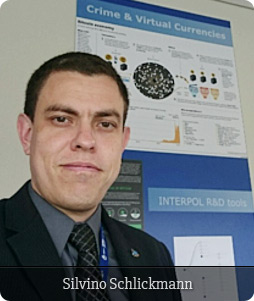
Federal Criminal Expert in the area of Forensic Computing, Silvino Schlickmann Junior is a Federal Police Liaison Officer with INTERPOL. At the Global Complex for Innovation in Singapore, he works as INTERPOL’s Assistant Director of Research and Innovation, coordinating the research and development of new techniques and tools to fight cybercrime. He also coordinates the unit that develops innovative training methods and the National Cyber Review (NCR) project, which evaluates the capacity of member countries to fight cybercrime.
At the Federal Police, he has more than 7 years of experience as Head of Parana’s Technical-Scientific Sector, after having managed the state’s Digital Forensic Laboratory for 2 years. He holds a bachelor's degree in Computer Science from the Federal University of Santa Catarina, and also has a Bachelor's Degree in Law with emphasis on International Comparative Law from the Federal University of Parana.
At the Joint ICCYBER ICMEDIA Conference 2015, Schlickmann will talk about “Research and Innovation. INTERPOL’s response to the fight against cybercrime”.
Luís Felipe da Cruz Nassif
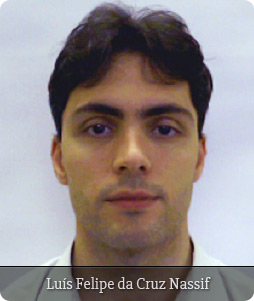
Master's degree in Electrical Engineering with emphasis in Information Security and Computer Forensics from the University of Brasilia in 2011.
Bachelor's Degree in Computer Engineering from the Military Institute of Engineering in 2005. Worked as Assistance Officer at the Brazilian Army Technological Center from 2005 to 2006. Currently a Federal Criminal Expert, based at the Regional Superintendence of the Federal Police Department of São Paulo, where he has worked since 2006 conducting forensic investigations as well as research and development of new forensic techniques and tools.
IPED: A new free-code computational forensic software for end-to-end analysis
The speaker will present computational forensic software IPED - Digital Evidence Indexer and Processor, being developed since 2012 in the Federal Police Technical-Scientific Sector in Sao Paulo.
It is a GNU GPL free-code multiplatform tool for end-to-end analysis of computer storage media, developed since the beginning with a focus on high processing efficiency, reaching rates of 100 to 300 GB/h, as well as on in-depth simple analysis, tolerating cases of up to 10 million items. It has a current range of features that rival commercial products, among them signature analysis; hash calculation; hash base consultation; container expansion; detection of encrypted documents; native viewing of dozens of formats; indexed search with OCR; analysis of image and video thumbnails; file recovery via Data Carving; marking relevant items; CSV reporting; and Html.
Fernando Schwengber Casarin
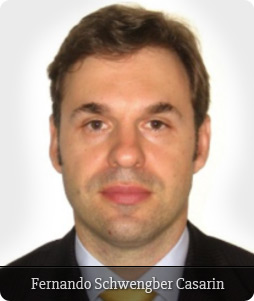
Federal Police Chief since 2009. Has a specialization degree in Commercial Law (UNISINOS/RS: 2001) and graduated in law (PUC/RS: 1991-1996).
Has completed courses in Fighting Crimes Against Plant Life and Fighting Cyber Crime.
Was based at the Federal Police Regional Superintendence in Rondonia at Porto Velho, RO between 2009 and 2014, where he worked at the Institutional Defense Division (DELINST), the Immigration Division (DELEMIG), and the Repression of Crimes Against the Environment and Heritage Division (DELEMAPH), where he was Interpol’s regional representative and in charge of coordinating judicial police activities during the electoral period, repression to slave labor and surrendering of federal conservation units, as well as being responsible for the operation that resulted in the imprisonment of pedophiles in Porto Velho, RO.
Was on commission at the Counter Intelligence Division of the Police Intelligence Directory (DICINT/DIP) between 2013 and 2014. Based at the Police Intelligence Nucleus of the Regional Superintendence of the Federal Police in Rio Grande do Sul, Porto Alegre, RS in 2014. Has been in charge of the Cyber Crimes Repression Group (GRCC /SR/RS) since March 2015.
At the Joint ICCYBER ICMEDIA Conference, FPC Casarin will present the case study "Operation Darknet: fighting child pornography in the Deep Web".
Patti Chrzan

Sr. Director, Global Accounts & Partnerships, Digital Crimes Unit, Microsoft Corporation.
Ms. Chrzan joined the Digital Crimes Unit (DCU) within Legal & Corporate Affairs in a newly created role 15 months ago. Ms. Chrzan’s role is focused on engaging with enterprise customers to drive awareness/education of Cybercrime/Cybersecurity and the work of DCU. She is focused on driving solutions which help customers secure their environment. Ms. Chrzan is responsible for developing strategic partnerships and programs to advance the work of the team in combatting cybercrime.
Before taking her current position, Ms. Chrzan spent six years in the WW Enterprise & Partner Group. She was most recently Sr. Director, Worldwide Industry Solution Sales. In this role, Ms. Chrzan led defining Microsoft’s Industry go to market industry approach and delivering growth in the sale of partner led solutions to solve customer challenges. Ms. Chrzan also led the strategy and execution for the Enterprise Partner Groups Dynamics business aligning the sales, marketing, partner, and services activities to deliver business solutions to customers in EPG. Ms. Chrzan’ s team focused their efforts on creating strategy, innovative programs and working together with the leaders of the managed industries to define solutions to address the unique needs of our enterprise customers.
Ms. Chrzan joined Microsoft in 1997 and has held leadership positions in Sales and Services in both the US Subsidiary and WW Enterprise & Partner Group. Before joining Microsoft, Ms. Chrzan held a leadership position with Phillip Morris USA and was President/CEO of Preferred Custom Software in Richmond, VA. Ms. Chrzan holds a degree from the University of Massachusetts in Human Development.
At the Joint ICCYBER ICMEDIA 2015 Conference, Patti Chrzan will speak on "Fighting Cyber Crime: Data Protection, and Privacy in the Digital Age: Big Data and Public-Private Partnerships".
José Ricardo Souza Camelo
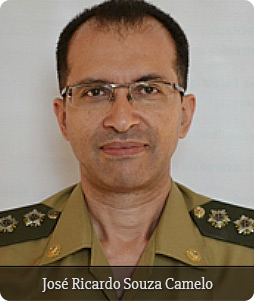
Military Colonel Engineer graduated in Electronic Engineering from the Military Engineering Institute (EMI) and holder of a Master's degree in Electrical Engineering from the University of Brasilia (UnB). Has worked for 20 years in information security, during which period he has performed research, standardization, projects and management duties. He was one of the experts to prepare the Army’s Strategic Cyber Defense Plan and is currently a supervisor in this project. In large events in Brazil, he served as Chief of Operations of the Cyber Defense Detachment at the United Nations Conference on Sustainable Development, known as Rio+20; during the FIFA Confederations Cup 2013, he was Commander of the Cyber Defense Detachment; during the 2014 FIFA World Cup he was Deputy Commander of the same Detachment. He has participated in the cyber war training contained in the Ministry of Defense Joint Operations since its inclusion in said operations. He has 15 years of experience as a professor of information technology and security in undergraduate and graduate courses. He is currently CDCiber’s head of the Doctrine and Mobilization and Technological Innovation Division.
At the Joint ICCYBER ICMEDIA Conference 2015, Colonel Camelo will speak about the work of the Cyber Defense Center – CDCiber, in the pursuit of its institutional mission.
Barry Logan

Dr. Barry Logan, Vice President of Forensic Science Initiatives at NMS Labs and Executive Director of the Center for Forensic Science Research and Education (CFSRE).
Dr. Logan is among seventeen leading forensic scientists and researchers to be appointed to the recently launched Forensic Science Standards Board (FSSB) of the US National Institute for Standards and Technology (NIST). Dr. Logan, a past president of the American Academy of Forensic Sciences (AAFS) has been appointed to represent 7,000 member organizations on the newly created Board.
The Future of Forensic Science: Autonomy & Governance
Dr. Logan will discuss the FSSB, which was created after five years of review and consultation to address the need for uniform national standards for the practice of forensic science recommended in the US National Academy of Sciences 2009 report on Strengthening Forensic Science in the United States.
The FSSB will oversee three resource committees, five scientific area committees and twenty four. subcommittees that will focus on specific disciplines, including DNA, toxicology, controlled substance testing, medico-legal death investigation, facial identification, latent fingerprints and firearms and toolmarks. The subcommittees will propose consensus documentary standards, for adoption by the Board, to improve the quality and consistency of work throughout the forensic science community.
“This is an extremely important development for our field, and we applaud NIST for taking this leadership role to unite the community behind a common process for standards development,” noted Logan. “This structure gives voice and an opportunity for input to hundreds of practicing forensic scientists, and will help ensure community support and buy-in for adoption of the consensus standards developed through the process.”
The FSSB is made up of representatives of various leading forensic science professional organizations, researchers and practitioners who will chair the scientific area committees. Dr. Logan’s remarks will highlight his work as President of the American Academy, and, emerging horizons in forensic science.
Arnon Tirosh
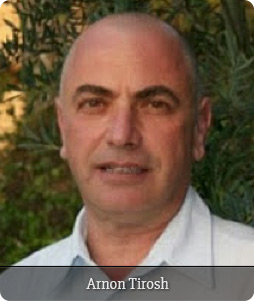
Arnon Tirosh is Cellebrite’s Solution Sales Expert for Forensic Products in the International Sales Organization.
At Cellebrite, Mr. Tirosh leads the sales of end to end solutions combining the full Forensic Product Portfolio into a complete forensic ecosystem while maintaining close relationships with the mobile forensic community.
Mr. Tirosh joined Cellebrite in 2014, bringing over 20 years of experience in the mobile and software industries. Previously Mr. Tirosh held senior customer management positions at Comverse (NASDAQ: CMVT) and Amdocs (NASDAQ: DOX).
Mr. Tirosh holds an MSc in Management Engineering from the University of Bridgeport, Connecticut.
Global Trends and a Tiered Approach to Mobile Forensics
Criminal investigations today increasingly have one thing in common – mobile data evidence.
As a result, mobile forensics capabilities have been thrust into the spotlight, along with the ongoing, dynamic challenges the industry now faces.
The use of social media on mobile devices, cloud services, rapidly evolving mobile device technology, stronger device and application encryption methods, and warehouses of data both collected and generated daily, represents significant implications for not only forensics examiners in the lab, but increasingly, first responders and investigators in the field.
These trends as well as a coherent workflow for mobile forensics investigations will be defined and discussed.
Valérie Maldonado

Chief of superintendent and head of the Central Office of fight against information technologies and communication related crimes (OCLCTIC) of the Central Direction of the french Judicial Police Department of Paris.
On april 29th 2014, the Central Direction of the french Judicial Police Department (DCPJ) has reinforced its fighting capabilities against cybercrime by creating the Division of fight against cybercrime (SDLC), a directorate in charge of defining the national policy regarding that matter. The SDLC includes in its ranks the Central Office of fight against information technologies and communication related crimes (OCLCTIC) created the May 15th 2000 and a new structure called the Anticipation and Analysis Division (DAA) specifically aiming towards the needs of the so-called connected population and the SMEs facing computer attacks.
The chief of superintendent, Valérie Maldonado, from the 44th graduating class of the National Superior School of the National Police (ENSP) in Saint-Cyr-au-Mont-d'Or, located in the Lyon's suburb, acts as Deputy Associate Director of the SDLC and has been in charge of the OCLCTIC for the past 5 years. She is involved in the development of all the new projects regarding cyberthreats and initiated by the Central Direction of the french Judicial Police Department.
Valérie Maldonado has previously been in charge of various specialized central divisions of the DCPJ in Paris and she has also worked in the inter-regional directions of the Judicial Police Department in Lyon and Marseille (in particular the local office of the Judicial Police Department in Nice) within the economic and financial divisions specialized in crimes regarding business law.
Investigative tools for international cyber investigations
The police investigation of cybercrime has particularisms perfectly identified:
- Whether the nature of the offender (organized criminal groups or individual perpetrators), there are many difficulties in the criminal investigation, linked to several factors:
- The cyber investigation is first of all a police investigation which will take an international scale; this international aspect raises the questions of joint cooperation systems.
- It requires quick reaction to get the preservation of technical data and to obtain these content data essential to the progress of the investigation and identification of perpetrators.
- The cyber investigation faces technical particularisms such as anonymization, encryption, the vpn, and an increasing volume of data to analyze and to store.
- It requires the use of ICT that are a major condition in the achievement of investigations.
Adapted tools in cyber investigations are essential and must answer to constraints, both legal and technical, and require appropriate training for use by investigators.
These tools must be able to respond to national legislation in all its aspects.
They also have to be easy to use and adapted, for example to a remote use from mobile devices.
The issue of encryption remains the most sensitive technical aspect, and public-private partnership makes sense to face the increasing of encrypted exchanges on the Internet.
Finally, these tools are relevant if only they are thought for investigators receiving initial and ongoing training, and correspond to pragmatic needs they formulated.
This is the challenge of the fight against cybercrime.
Carlos Eduardo Palhares

PhD in Sciences/Pathology (University of São Paulo - USP), with lines of research in Facial Anthropology and Craniofacial Identification. Master's in Health Sciences and graduated in Odontology at the University of Brasilia (UnB). Expert in Forensic Odontology and Prosthodontics. Is Forensic Expert in the Federal Police of Brazil, where coordenates the Disaster Victim Identification Team and develops activities and projects related to the field of Human Identification and Forensic Anthropology. Is the actual chairperson of the INTERPOL DVI Standing Committee e DVI Steering Group. It is part of the teaching staff of National Police Academy and in several courses of Forensic Odontology in Brazil.
Flávio Vidal
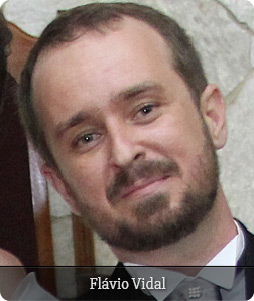
Prof. Flávio Vidal received the Diploma degree in Electrical Engineering from the Federal University of Juiz de Fora (2002), obtained his Master Degree in Electrical Engineering (2005) and PhD in Electrical Engineering from the University of Brasilia (2009). He is currently Associate Professor in the Department of Computer Science at the University of Brasilia. The main area of interest is Computer Science and Electrical Engineering focuses on Computer Vision and Systems Automation, in the following topics: computer vision (tracking, motion analysis and facial analysis/recognition), automation systems, computer architecture and digital image processing.
Forensic anthropology applied to Brazil’s reality: Development, improvement and validation of computational methods to facial minutiae extraction in digital images to anthropology and forensic medicine examinations
The criminals’ identification and their victims is a main key of a police investigation and a critical task for Forensic Sciences. In kept and whole bodies, this task can be performed without many problems, however, the procedures for determining the identity of an human remains to small fragments are a real challenge. For these cases, the Forensic Anthropology is a powerful and sometimes the only resource. Many techniques from the Forensic Anthropology area can be adapted to the Brazil’s reality to development, improvement and validation these methodologies and protocols using anthropology, medicine and forensic dentistry examinations, especially those related to determining (or estimating) gender, age, height and phenotype/skin color. In order, to achieve these effective results, a exclusively anthropological studies based on images (photoanthropology), is need to develop specific methodologies which only information comes from a digital image. This information should be discriminative enough to allow determining (approximate) the sex, age and characteristics to identify an individual as required by the forensic field. In this lecture we will address the main techniques for determination and self-extracting of the facial features in the literature and main improvements to the development of anthropological analyzes and protocols for forensic purposes.
Amy Heydman

Amy Heydman is the owner and Chief Executive Officer (CEO) of Kreshty LLC with a record of exceptional leadership and strategic vision in cybersecurity and Continuous Diagnostics and Mitigation (CDM) implementations across multiple US government agencies over the past 15 years. Her most recent accomplishment focused on leading a team to establish the government-wide CDM program for the Department of Homeland Security. The CDM program is a $170 million program that fortifies the cybersecurity of US government IT networks and systems. CDM provides US federal departments and agencies with capabilities and tools that identify cybersecurity risks on an ongoing basis, prioritizes the risks based upon potential impacts, and enables cybersecurity personnel to mitigate the most significant problems first.
She has also held senior level IT program management positions at the United States Department of Health and Human Services (HHS), Acuity Incorporated and Northrop Grumman. At HHS, Amy served as the IT Security Continuous Monitoring lead and led efforts to ensure all IT health, research, critical infrastructure and supported information systems were adequately monitored and maintained worldwide. At Acuity, she successfully led the completion of a 30,000 IT asset consolidation effort for the US Department of State, which saved the department over $25 million in IT maintenance and support costs once the project was completed. Amy also served as one of the Chief Northrop Grumman IT Engineers that spearheaded the automation and centralization of enterprise patch and vulnerability remediation deployments, modernized the IT infrastructure, and applied security best practices at US embassies and consulates worldwide.
In ICCYBER ICMEDIA 2015 Joint Conference, Amy Heydman will talk on Best practices for Cyber Security that work globally for large enterprises.
Hirotaka Nakasone
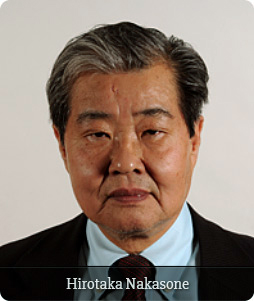
Dr. Hirotaka Nakasone has been with the Federal Bureau of Investigation since 1996. He is currently assigned as Senior Audio Electronics Engineer (Senior Level Service) at Digital Forensic Analysis Section, Operational Technology Division, Quantico, Virginia. Dr. Nakasone earned his Ph.D. and M.A. in Audiology and Speech Sciences from Michigan State University, East Lansing, Michigan, 1984, and 1979, B.S. in Psychology from University of South Carolina, 1976, and B.A. in English Literature from University of the Ryukyus, Okinawa, Japan, 1972. Dr. Nakasone serves as Senior Audio Advisor for the FBI, and manages/advises numerous research projects on speaker recognition, acoustic analysis of gunshots, audio processing, and speech modifications. As a collateral duty, he is an FBI certified examiner providing the expert opinion for the law enforcement and intelligence agencies on the matter of forensic audio/signal analysis and of speaker recognition.
Dr. Nakasone was a recipient of the 2007 FBI Director’s Awards for Excellence – Outstanding Scientific Advancement in the development and application of the FBI’s Forensic Automatic Speaker Recognition System. He was inducted as a Fellow of the Director of National Intelligence Science and Technology in 2009. Currently he is the lead Subject Matter Expert on voice modality for the Biometric Center of Excellence Initiatives, Criminal Justice Information Services Division of the FBI’s Science and Technology Branch.
From February of 2013 to August of 2014 Dr. Nakasone served as Chair of the Scientific Working Group for Forensic and Investigatory speaker Recognition sponsored jointly by the Federal Bureau of Investigation and the National Institute of Standards and Technology. In August of 2014 he was appointed to be a member of the IT/Multimedia Scientific Area Committee, the Organization of Scientific Area Committees (OSAC), a new initiative jointly managed by the U.S. National Institute of Standards and Technology and the Department of Justice, and to serve as Chair of the OSAC Speaker Recognition Subcommittee.
In ICCYBER ICMEDIA 2015 Joint Conference, Dr. Nakasone will talk on Forensic and Investigative Speaker Recognition - Current Practice and Future Trend.
Irina Karla Bacci

Physical Therapist, master's degree candidate in Human Rights and Citizenship from UnB, and specialist in Hospital Administration and Health Systems from FGV/SP. Presently the National Ombudsperson for Human Rights of the Secretariat of Human Rights of the Presidency of the Republic.
#HumanizaRedes - National Pact to Confront Human Rights Violations on the Internet
The National Pact to Confront Human Rights Violations on the Internet is a Federal Government initiative that aims to establish a national network to prevent and confront human rights violations on the internet, ensuring that Brazilian users, especially children and adolescents, encounter more safety and responsible use when accessing the Internet and social networks.
#HumanizaRedes comprises three strands of activity and will draw on actions targeting the Web, such as: guidance for its safe and responsible use; receiving and forwarding complaints involving crimes and human rights violations perpetrated on the Web; and promotion of a legal virtual environment that is safe and free of discrimination.
The initiative is coordinated by the Secretariat of Human Rights and is carried out together with the Secretariat of Policies for the Promotion of Racial Equality, the Secretariat for Women's Policies, the Ministry of Justice, the Ministry of Education and the Ministry of Communications, with consent of the Brazilian Internet Steering Committee (CGI.br ) and the support of Internet applications providers, such as Google, Facebook and Twitter.
Rafael Luiz Feliciano da Costa Schincariol
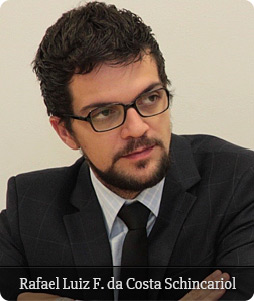
General Coordinator of the Special Commission on Political Deaths and Disappearances. He is the coordinator of the Araguaia Working Group and the Peru Working Group, both responsible for the search and identification of persons gone missing during the civil-military dictatorship. Specialized in Transitional Justice, he is conducting a post-doctor research in political science and is a doctor of law from the University of Sao Paulo (USP). During his doctoral research, he was a researcher with the Center of Studies on Violence (USP), a visiting researcher with the Latin American Center at the University of Oxford and with the Institute of Social Research ("Frankfurt School") of the Goethe University of Frankfurt. He is a member of the Group for the Internationalization of Law and Transitional Justice. He was an advisor on policies to guarantee the right to memory and truth at the Secretariat of Human Rights of the City of Sao Paulo. He is a campaigner for Human Rights.
Forensic Anthropology and Human Rights: the search for missing persons
Forensic anthropology is absolutely essential to the search for and identification of missing persons and to assure respect for family members. First, because of the pursuit of truth and the construction of the memory of the serious violations to human rights, which takes place during the identification of bodies, at the places of their exhumation, and as a result of the historical investigation performed in order to contextualize the disappearance. Second, the attention to how the families of victims of State violence are approached means that the forensic work is itself a process of symbolic reparation. Third, because it is possible that the results obtained with forensic anthropology inform legal proceedings against State agents responsible for human rights violations, confirming the duty of justice, as happened in other countries.
Marcos Mazoni
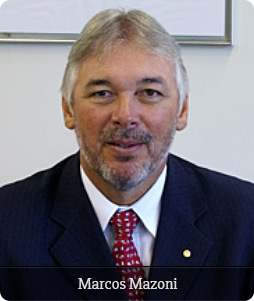
President and Chief Executive Officer of the Federal Data Processing Service (Serpro) since 2007, holds a bachelor's degree in Business Administration, with a specialization in Information Technology from the Getulio Vargas Foundation and in Business Management from Universidade Federal do Rio Grande do Sul. Captained Paraná’s state computing company (Celepar) since 2003.
Before working for Celepar, Marcos Mazoni was president of the Data Processing Company of Rio Grande do Sul (Procergs) from 1999 to 2002. He worked for 20 years at Companhia Riograndense de Telecomunicações, where he was operational planning manager (1990-1991). Between 1990 and 1992, he was part of the Porto Alegre City Hall Planning office. He held the position of technical and administrative director of the Data Processing Company of Porto Alegre (Procempa) in the period 1993 to 1998. He also presided the Brazilian Association of Municipal Computing Companies (ASBEMI) from 1997 to 1998 and the Brazilian Association of State Information and Communication Technology Agencies (ABEP) from 2003 to 2004.
Mazoni is a precursor of free software computer systems in Brazil. In addition, he is the winner of numerous national awards in Computing: Political Distinction - ASSESPRO-RS - Year 2000; Administrator of the Year - Public Sector - CRA-RS - Year 2000; Quero-Quero Free Software Incentive Award - PROCERGS - Year 2002; SECOP Incentive Award - ABEP - Year 2004; Free Flight Award - BrOffice Community - Year 2006; Information Technology Professional Award - Government Segment - Computing Today - Years 2007 and 2009; Public Sector’s Most Influent Personality - CIO Brazil GOV - Years 2008, 2009 and 2010.
At the Integrated ICCYBER ICMEDIA 2015 Conference, Marcos Mazoni will speak about "Security in Information Systems".
Moti El-Chay
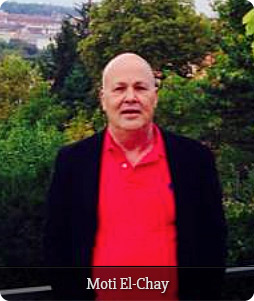
Moti El-Chay, serves as: Senior Account & Program Manager, Cyber Programs, Israel Aerospace Industries Ltd. (IAI).
In this position Moti is responsible to establish and maintain customers activities in the Cyber arena based on IAI solutions and products.
Prior Moti was positioned in Allot Communication IL, as Senior Customers Manager in APAC and had a Branch Office in Hong-Kong.
Moti has a global experience in networking, marketing and customer service.
Moti holds a MA Degree in Law, Bar Ilan University, and MA Degree in Dispute Resolution, Bar Ilan University.
Sérgio Thompson-Flores

Mr. Thompson-Flores was the principal and founding partner of Worldinvest, a financial advisory and business development firm in Brazil, from 1996 to 2006. Prior to Worldinvest, he was the managing director of a Brazilian development bank with active private equity practice. Previously, he was a diplomat in the Brazilian Foreign Service and served in a senior position in the Brazilian Finance Ministry. He holds a Master’s degree and a Bachelor’s degree in International Relations from Instituto Rio Branco.
At the Joint ICCYBER ICMEDIA Conference 2015, they will speak about Integrated Command and Control Centre for Cyber Defence - Integrating Platform for Operations and Intelligence.
Luis Mauricio Vergara Jiménez

Professional in systems engineering and specialist in information security, certified as Information Security Manager (CISM) with extensive experience in securing information systems and networks, IT audit, risk assessment, analysis and design of IT security architectures, implementation of standards and best practices like ISO 2700X, ITIL, COBIT, NIST, PCI DSS, among others. Experience in implementing integrated management systems. Besides participating in projects of different sectors such as financial, government, transport and services. And I have held positions as IT Infrastructure Administrator, IT Auditor, Information Security Consultant, Cyber Security Advisor, and Chief Information Security Officer.
At the Joint ICCYBER ICMEDIA Conference 2015, Luis Mauricio will speak about CYBERSECURITY to Safeguard lives and Property.
Secure Elections Panel
The panel will discuss various aspects pertaining to secure elections in Brazil: legal, technological, logistical, procedural, and others. The maturity of Brazil’s electoral process will also be addressed, along with developments and trends in a social scenario that is new, more demanding, more participatory and more civic, always according to 'security'.
Painelistas Confirmados
Diego Aranha
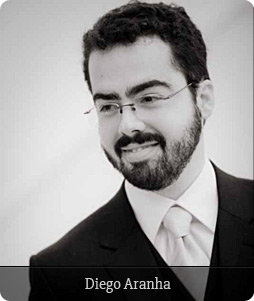
Diego de Freitas Aranha is a professor at the State University of Campinas (Unicamp). He coordinated the first team of independent researchers capable of detecting and exploiting vulnerabilities of the electronic voting software in controlled tests organized by the Superior Electoral Court. He is experienced in the area of Computer Encryption and Security, with emphasis on the efficient implementation of cryptographic algorithms and the design of cryptographic primitives for computer anonymity. He holds a Bachelor's Degree in Computer Science from the University of Brasilia (2005), a Master’s degree (2007) and a PhD (2011) in Computer Science from the State University of Campinas. He was a visiting doctoral candidate for 1 year at the University of Waterloo, Canada, and Adjunct Professor for over 2 years in the University of Brasilia’s Computer Science Department.
Thiago Cavalcanti
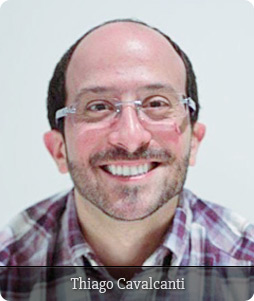
Thiago Sá Cavalcanti graduated a Computer Scientist from Universidade Estadual de Campinas - UNICAMP (2001). He worked as an Information Analyst for the Brazilian Intelligence Agency - ABIN (2005). He has been a Federal Criminal Expert at the Federal Police Department since 2006, stationed at the National Institute of Forensic Science - INC, in Brasilia. He took part in every public testing of the Brazilian electronic voting machine promoted by the Superior Electoral Court - TSE, focusing on assessing its security system.
Panel Cyber Security at the Olympic Games and Paralympic Games in London 2012, Rio 2016 and Tokyo 2020
This panel on cyber security at the Olympic and Paralympic Games will present and discuss the experience in London 2012; the preparations, challenges and the present moment of Rio 2016; and the planning and expectations of Tokyo 2020. The panelists are experts indicated by the organizing countries.
Confirmed Panelists
Takahisa Ishida - Japão 2020
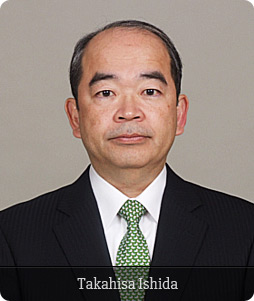
Deputy Director-General, Office for the Promotion of the Tokyo 2020 Olympic and Paralympic Games, Cabinet Secretariat (Cabinet Councillor). Bachelor of Law, Tokyo University (1985). Director, Finance Division, Commissioner-General’s Secretariat, National Police Agency (2014). Chief, Community Safety Bureau, Metropolitan Police Department (2012). Chief of Akita Prefectural Police (2011). Director, Traffic Management and Control Division, Traffic Bureau, National Police Agency (2009). Director, Traffic Enforcement Division, Traffic Bureau, National Police Agency (2008). Counsellor, Cabinet Intelligence and Research Office, Cabinet Secretariat (2006). Special Assistant to Director, General Affairs Division, Commissioner-General’s Secretariat, National Police Agency (2005). Advisor for Traffic Accidents or Crimes, Traffic Enforcement Division, Traffic Bureau, National Police Agency (2004). Chief, Traffic Administration Division, Traffic Bureau, Metropolitan Police Department (2002). Director, Security Department, Japan Organising Committee of the FIFA 2002 Worldcup (1999). Chief, Police Administration Department, Saga Prefectural Police Headquarters (1997). Assistant Director, General Affairs Division, Commissioner-General’s Secretarial, National Police Agency (1995). Cabinet Official, Cabinet Security Affairs Office, Cabinet Secretariat (1993). Studying at Cambridge University in the U.K. (1992). Chief, 2nd Criminal Investigation Section, Criminal Investigation Department, Kyoto Prefectural Police Headquarters (1990) . Chief, Traffic Regulation Section, Traffic Department, Aichi Prefectural Police Headquarters (1988). Joined the National Police Agency (1985).
Oliver Hoare - Londres 2012

Oliver Hoare is Managing Director of Dysart Solutions Ltd., a UK strategy consultancy specialising in national and cyber security.
Prior to establishing Dysart in 2012, Oliver was Chief Information Security Officer for the London 2012 Olympic and Paralympics Games. During an intense four year period Oliver was responsible for an cyber-security assurance programme across the Games-wide domains, including the UK’s critical national infrastructure and Olympic supporting networks. Oliver advised ministers and senior officials on a range of technology and security matters, and during “Games Operations” was the cyber lead at the epicentre of the UK’s national crisis management centre, known as “COBR” (Cabinet Office Briefing Rooms).
Having spent most of his career as a senior executive with the UK Cabinet Office with responsibilities for security policy, cyber-security and information assurance, Oliver has a deep and holistic appreciation of the subject, and the Government’s role in discharging its responsibilities. Amongst other achievements Oliver played a lead role the Prime Minister’s 2008 Data Handling Review, but is perhaps best known for his wide-ranging review of UK government security policy, which led to the creation of the HMG Security Policy Framework; the cornerstone policy document for the UK Security within Government, Police and Armed Services.
Oliver now manages forty or so genuinely experienced cyber and national security consultants, with a global clientele. Oliver is currently consulting as a Special Adviser on Homeland and Cyber security to the British Inter-government Services Authority (BISA), a new prosperity venture on behalf of the UK Foreign & Commonwealth Office and Home Office, to establish large government-to-government contracts with friendly foreign governments.
Oliver is a published author, and lectures, on a variety of security issues and is often interviewed by the media.
Rômulo da Silva Rocha - Rio 2016
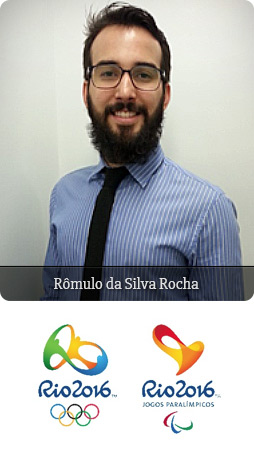
Information Security Expert of the Organizing Committee of the Olympic Games Rio 2016, in charge of coordinating the Response to Incidents group and the Cyber Defense initiatives. Specialized in Information Security at the Federal University of Rio de Janeiro, where he presented papers on attacks with the use of social engineering to evade defenses traditionally used in corporations. An enthusiast of the information security sector, especially pentesting, he spoke at the Rio de Janeiro and Brasilia editions of Roadsec on attack techniques using spear phishing and the challenge of defending from it. He has worked with large national and international companies as an information security consultant, having worked with a number of technologies related to the theme, in addition to having performed large verification and adequacy projects in compliance with PCI, ISO27001 and SOX.
Book Signing
Desvendando a Computação Forense
Pedro Eleutério and Marcio Machado
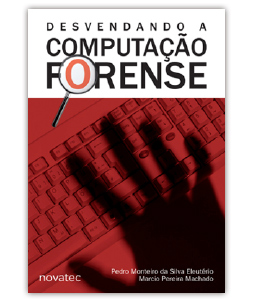
In this book, Federal Criminal Experts Pedro Monteiro da Silva Eleutério and Marcio Pereira Machado teach the concepts, procedures and techniques that are fundamental in this brand new, intriguing and multidisciplinary area that is Forensic Computing. By using simple, objective language, the authors define and detail the most common forensic examinations in computing, including examples of tools that can be used and practical tips for overcoming challenges in the area. The book discusses all phases of such examinations, including the correct preservation, retrieval, analysis and presentation of digital evidence with evidential validity in court proceedings. All chapters contain practical examples taken from real cases dealt with by the authors in their professional experience of working daily to unravel different crimes committed with the use of a computer.
"Desvendando a Computação Forense", a pioneering national book in Computer Forensics, is a must-read book for students, teachers and computing professionals who want to venture into this important field of study so disseminated nowadays. This book is also a complete guide for law enforcers such as judges, police chiefs, prosecutors and lawyers to understand how Forensic Computing can assist in quickly solving crimes, contributing to faster and more efficient legal proceedings.
Book pre-launch
Tratado de Computação Forense
(Forensic Computing Treaty)
The pre-launch of book Tratado de Computação Forense will take place during the Joint ICCyber ICMedia Conference 2015. The work was constructed with the dedication and commitment of several federal and state criminal experts, in addition to other professionals specialized in Forensic Computing.
The doctrinal basis recommended from collecting the cyber trace to the final technical documents drafted by legal professionals are presented in three sections. Layouts of procedures, case studies, a table containing curious examples and stories, photos, and an informal teaching language render the book a work suitable for refresher courses and vocational training.
The book will be part of the "Criminalística Premium" series by Editora Millennium.
Associated Events

Meeting of Federal Police Regional Superintendents
A forum comprised by the chief Federal Police directors from all Brazilian states and the Federal District, and the Federal Police Director General, to discuss the institution’s global strategies across the national territory.

Meeting of Federal Forensic Science Department Heads
A forum comprised by the Federal Police heads of forensic science units in the states and the Federal District, and the Federal Police Technical Scientific Director, to discuss federal forensic science operational standards throughout Brazil.

2nd Conference of the Brazilian Academy of Forensic Science - CONFORENSE
A Conference with the objective of promoting interaction among forensic science professionals on the national and international level, encouraging the research, teaching and development of the many forensic science areas in Brazil. There will be a presentation and discussion of all projects included in Program Pró-Forenses / Capes with the support of the Brazilian Academy of Forensic Sciences - ABCF.
SCHEDULE ➤
Click here to download the CONFORENSE's schedule

Meeting of the National Council of Criminal Expertise - CNPC
A forum composed of the heads of state and Federal District Criminal Expertise bodies, with the objective of discussing operational standards, management models, Criminal Expertise scientific and technical development, and the political relationship with other actors in the Brazilian justice system.
